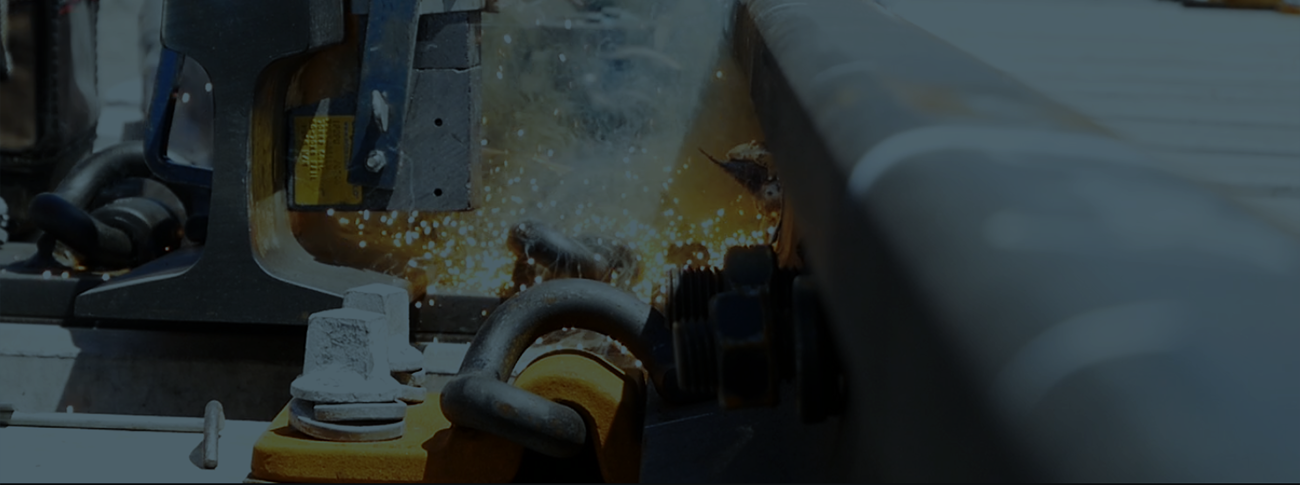Railways impact projects from many different engineering disciplines. Knowing how a tramline or rail station may affect a construction project can improve the outcome—regardless of your role in the project.
In this self-paced course, you'll gain insights from a rail industry expert about the role of an engineer in the design, maintenance and construction of rail services. You'll also learn what legislation applies to the safety and asset management of rail services.
You'll use working examples and case studies to learn the specific elements needed to make a train run, including track, signalling, electric traction and IT.
You'll also learn the components of railway rollingstock and track, including:
- locomotives
- diesel and electric railcars
- trams
- passenger coaches
- freight wagons
- rails and sleepers
- ballast
- signals
- overhead wiring.
Apply your learning from this course to improve communication with other professionals during rail projects.
After completing this course, you might want to further your knowledge in this area by enrolling in the Diploma of Engineering Infrastructure (Rail) (P1A).
*1% credit card surcharge applies.
Any questions?
Contact us
1 January - 31 December
Once you register, you will be provided with access to the EEA Online platform to start this course.
We can arrange bulk registration packages for corporate clients.
This includes the option to set up an access code for your organisation, allowing your team to register for courses on demand, avoiding the need to request individual Purchase Orders.
Find out how we can help you and your team by completing an enquiry form or calling us on +61 3 9321 1700.
- Describe the role of engineering in railway operations.
- Compare the methods of rail service for passengers and freight.
- Identify innovations in railway engineering.
- Implement the engineering steps for a new railway service.
- Communicate with a customer to shape and deliver a rail service.
- Contribute to efficient railway operations.
- Apply safety principles.
Is this course for you?
This course suits recent engineering graduates, or experienced engineers who need a broad understanding of railways.
It also suits other professionals in fields such as:
- finance
- governance
- management
- legal
- asset management.
There are no prerequisites for this course.
Topics we'll cover
- The role of engineering in railways
- Safety
- Electrical and information technology engineering for the customer
- Rollingstock
- Asset management - signalling
- Infrastructure
- Management for business continuity
Martin Baggott is a civil engineer and railway expert.
He applies engineering principles to solve railway problems. During his early career, he worked in railway infrastructure. He later managed train (rollingstock) maintenance and operations.
During his 40-year career, he has modernised and improved railway safety and regulation, and operational efficiencies, across Australia and overseas. He brings technical and innovative rail examples to his courses.
This course is delivered through EEA Online, our digital learning platform.
You'll learn using a mix of practical case studies, quizzes and reading, audio and video materials. You'll also apply your knowledge in practice with a variety of assessment tasks and learning checks.
It will take approximately eight hours to complete. As it is self-paced, you can start anytime and save your progress as you finish each module.
Once you register for the course, you have 90 days to complete it.
Upon successful completion of the course, you will receive a digital badge as evidence of your achievement. Learn more about Engineering Education Australia’s digital badges including how to claim and share on our Frequently asked questions page.
This also counts towards the number of Engineers Australia Continuing Professional Development (CPD) hours you can claim.
EEA Online access
EEA Online is powered by leading Learning Management System (LMS), Canvas by Instructure.
Once you register for a course, you will be provided with access to the EEA Online Canvas platform to start this course.
If you are registering for your first EEA Online course, you will receive an email from [email protected] inviting you to set up your EEA Online account.
Supported Browsers
For best performance, please use the most recent major release of Chrome, Firefox, Edge, or Safari. Read more about the current supported browsers on Canvas:
Mobile access
EEA Online is mobile friendly, however desktop is preferred. Please read through the following information on mobile access via Canvas:
Really well thought out, logical and contained industry relevant content. Enjoyed the content, learned new things and found the self paced nature perfect for my lifestyle.
This course covered a broad spectrum of topics and great insight into railways.
I really enjoyed the course and its engaging material, especially the localised case studies.


